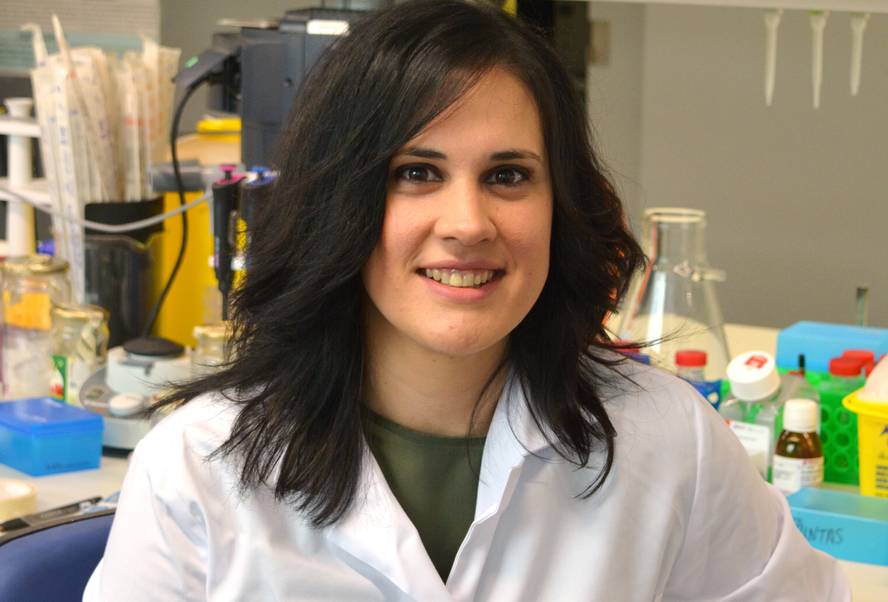“Here is a leading research”
The European Association of Gastroenterology (UEG) has won one of the awards awarded to young outstanding researchers Matxus Perugorria has been one of the awards that Montiel has. These awards, called the Rising Star Award, give a great boost to young people who acquire it. This is what Perugorriak has recognized: "They don't give money, but there is a recognition to the work you do. It is taken to taste, how not".
It has come down the right path and with a lot of work. He studied Biology and Biochemistry in Pamplona and decided to do his thesis. "The researcher Karmen Berasain Lasarte gave me the opportunity to carry out the thesis in his department. I did so in the field of chronic liver diseases, especially in hepatocarcinoma."
He began working with cells involved in cirrhosis, with stellar hepatic cells, which are the ones that generate the highest amount of collagen. "80% of hepatocarcinomas occur in cirrhotic livers," explains Perugorriak. For his research he travelled to Newcastle (England) for three years, where he studied postgraduate studies, especially in hepatic fibrosis.
After an Ikerbasque scholarship, he returned to Euskal Herria, specifically to Biodonostia: "That gave me the best option to stabilize. I'm not yet fully stabilized, but these scholarships are five years old and their goal is for researchers to stay in the Basque Country." In addition, he has obtained the Ramón y Cajal grant in Biomedicine and has now joined the university with the aim of stabilizing.
About barriers About barriers
This is one of the biggest problems of many researchers: precariousness. "We have no certainty to continue working and that generates great headaches and worries. We are always asking for scholarships and it is very hard because there is a lot of pressure and competition." However, he stressed that there are things that are done well, and considered as a clear example the work of Ikerbasque: "He has bet that the most cutting-edge researchers come here and stay here investigating, and I think it's the way."
In addition to hepatocarcinoma, it explains that there is another type of cancer in the liver, cholangiocarcinoma, or tumor that occurs in the bile ducts. Now he also works and have managed to highlight the research carried out by his team in cholangiocarcinoma when creating a network in Europe: "The first congress was held in Donostia and we have achieved large European projects in cholangiocarcinoma," he said.
Somehow, the trajectory of Perugorria demonstrates that to carry out a cutting-edge research is not essential to travel abroad. According to him, "we tend to think that the level of external research is better, but I do not think so. Here is a leading research".
Women in Science
Perugorri, for his part, mentioned Responsible Research and Innovation (RRI): "Since the European Union, a lot of work is being done on gender and here too. In short, they are seeing that women do not reach the top positions, especially because they leave it on the way, for example, by motherhood. Therefore, there are now initiatives for motherhood not to be an obstacle," he explained.
"In this regard, I recently participated in a conference organized by the UEG, Women in GI, which has been very interesting. There were debates, how to change the situation, etc. And I think we have to give importance to these kinds of things."
Born in Bera in 1981. He studied Biology and Biochemistry in Pamplona and did his thesis in the field of hepatocarcinoma. The postdoctoral, for his part, did so in Newcastle, England, from where he returned to the Basque Country thanks to an Ikerbasque scholarship. Since then he has been dedicated to research in Biodonostia and has recently won a prize from the European Association of Gastroenterology.







